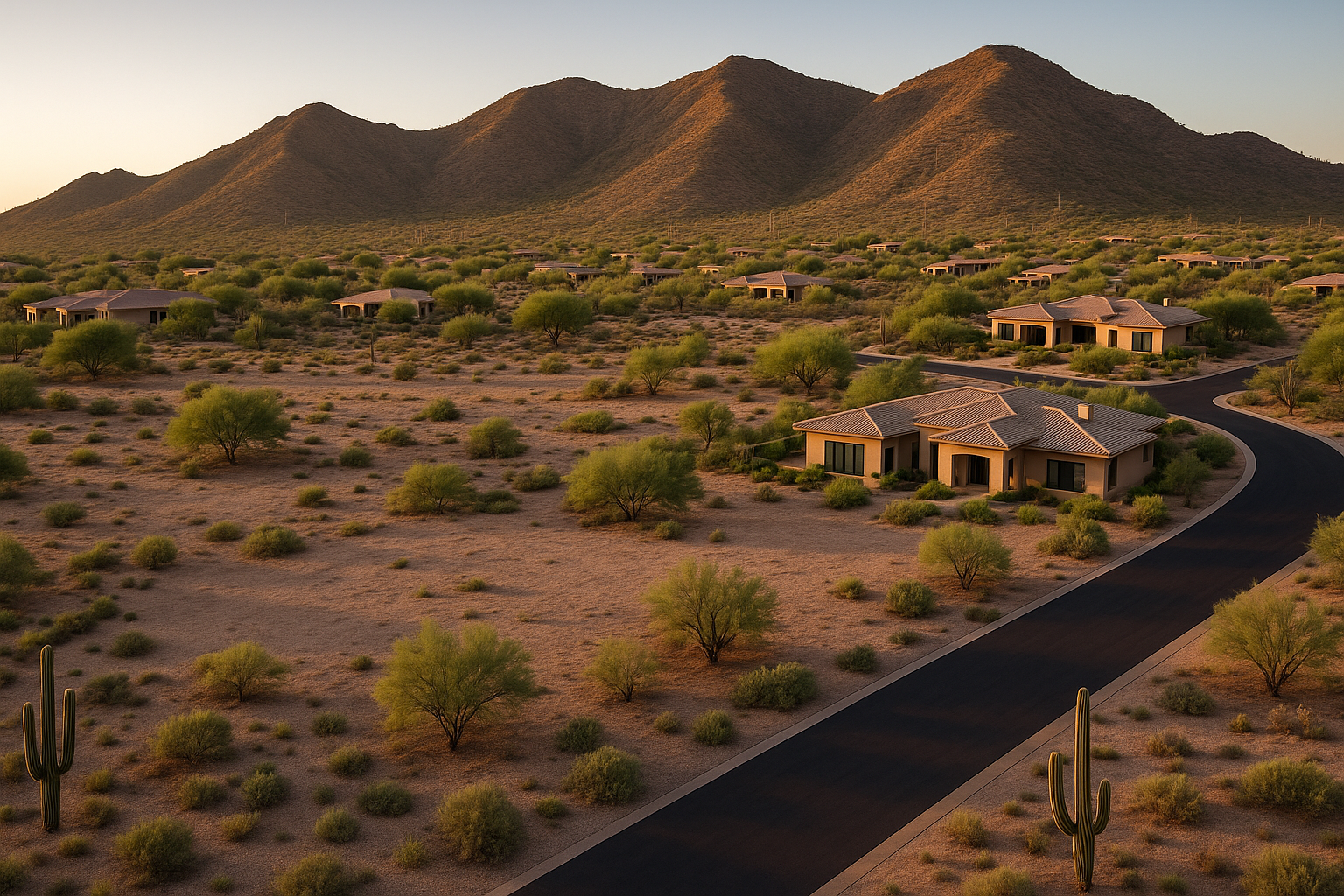
Buying land in Arizona isn’t hard.
But buying land that actually works for your goals? That takes some digging—especially in a state with unique water laws, zoning quirks, and environmental overlays.
Whether you’ve inherited a parcel, bought at auction, or are hunting for your next land investment, this Arizona due diligence guide breaks down exactly what to check—and where to look—so you’re not stuck with surprises later.
Arizona has:
Active land auctions and tax lien sales
Wildly different rules between counties
AMAs (Active Management Areas) that limit groundwater use
Massive spreads of rural land with no utilities or access
That’s why due diligence here goes beyond the basics. Let’s walk through what matters.
Each county sets its own zoning rules. “Residential” in Maricopa doesn’t mean the same thing as “Residential” in Pinal.
County zoning maps & code
Call planning & zoning to confirm permitted uses
Ask about overlays like scenic corridors, hillside ordinances, or minimum lot sizes
👉 Related: Understanding Zoning in Arizona
A dirt path across someone’s land isn’t always legal access.
You’ll want recorded easements or road frontage on a public road.
County parcel viewer (look for frontage)
Recorder’s office for easements
Call planning to confirm it’s buildable under current access
👉 Related: Land Access & Utility Basics
This is Arizona—you can’t ignore water.
Some land comes with no rights to drill a well. Other parcels sit in AMAs where water rights are tightly controlled.
If the parcel is in an AMA (Active Management Area)
Whether a well is permitted
Nearby water hauling options (if needed)
Shared wells or community water districts
Water adequacy reports (for larger projects)
Call the county water department
Use ADEQ for hauling/water source info
👉 More coming soon: Water Due Diligence in Arizona
Especially in rural Arizona, you’ll likely need a septic system. But if the soil can’t absorb water (no “perc”), you may be out of luck.
Has a perc test ever been done?
Is there prior septic permit history?
What’s the slope and soil type?
USDA Web Soil Survey
County Environmental Health Department
Ask a septic contractor about nearby installs
👉 Related: Environmental Checks 101
Flash flooding is a real thing in Arizona. Even desert parcels can sit in high-risk zones.
County flood control district
Ask about elevation certificate requirements
👉 Related: Environmental Checks 101
HOAs and old deed restrictions can override what zoning allows.
Some say “no RVs,” “no manufactured homes,” or “must build within 3 years.”
Recorded CC&Rs with the County Recorder
Ask for HOA bylaws (if active)
Review the deed for private covenants
👉 Related: Local Land Use Rules to Watch
Did the property come from an auction or inheritance?
You’ll want to confirm clean ownership—and that no surprise liens are hiding.
Property tax status with the County Treasurer
Liens via Recorder’s Office (search by name + parcel)
Ownership chain through the deed history
Ask a title company if you’re planning to build or resell
👉 Related: Title Research for Vacant Land
👉 Related: How to Check Land for Liens
I built the Land Clarity Blueprint™ to help everyday people navigate Arizona’s complex land landscape.
Here’s what I can do:
Run full zoning and use checks
Break down access, utilities, and buildability
Review deed restrictions, CC&Rs, and overlays
Flag flood, soil, or environmental issues
Provide plain-language guidance so you can move forward (or walk away smart)
⚠️ Disclaimer: I’m not a lawyer or title officer. I use public info and land records to give you clarity, not legal advice.
I connect the dots so you don’t have to guess.
Arizona land is full of opportunity—but also full of fine print.
If you’ve got land here (or you’re looking to buy), the key is knowing what questions to ask—and where to find the answers.
That’s what I’m here for.